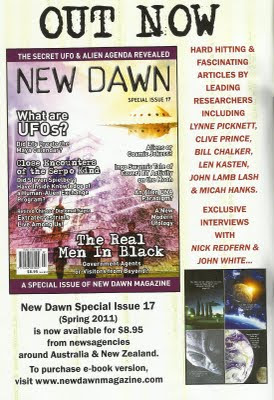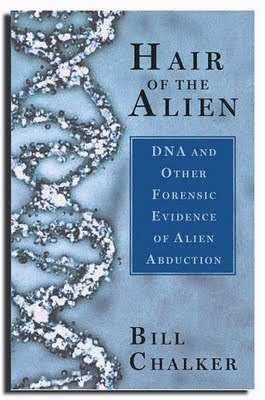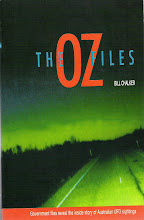
It was sad to hear of Budd Hopkins' passing, but I would rather help celebrate his life and contributions.
I have posted here my review of Budd's memoir
"Art, Life and UFOs" which was published in the September October 2009 issue of the Australian magazine
"Ufologist."
I was particularly touched by Budd's reaction to my review:
Everything about your reaction to "Art, Life and UFOs" warmed my heart - especially when you said that you felt you had been sitting and listening to a conversation with me and "only occasionally realizing that it was by way of "a book in my hands." What more could an author want than to establish that kind of rapport with a reader? As an author yourself, you know what that means.
I was very interested to find out about your own art background, and the surprising area we have that in common in addition to that of our UFO research. You should keep at it. A little sketching each day can be very helpful, and can remind you of the pleasure of it all. Once, when my daughter's third or fourth grade class was brought by her teacher to visit my studio, I showed the children my work installed upstairs in my apartment. When we started down for the studio proper, the children descended the stairs two by two, properly holding hands,
and I slipped in back of a litttle girl and boy who did not know I was behind them. "I don't understand what he's doing," the boy complained to his partner. "I don't know what those things mean." "But don't you see?" she replied. "He wants to make something no one's ever seen before." I loved it. She got at least part of it right. Out of the mouth of babes...
So give it a shot, Bill. Even if you want to sketch something everyone's seen before, but give it your own personal twist. In a way, you can't help being personal because we each have our own emotional and artisic handwriting. We're born with individuality born right in us. And think of all the (inevitably frustrating) fun you'll have.
I responded:
Thanks for your encouragement of my "artistic" activities. I do use my
sketching etc to flesh out my reports & investigations and will continue
to do so. Beyond that, we will see. I'm not planning any exhibitions anytime
soon :-)
Click on the post "UFOIC 1969 Classic - the north coast NSW UFO
"nest" saga" at the following link and then click on my drawing of the woman
witnessing the UFO hovering above the sugar cane crop apparenty "levitating"
her in its beam: http://ufoicaustralia.blogspot.com/2007/01/ufoic-1969-classic-north-coast-nsw-ufo.html and in "UFO Flap Dejavu" illustrating my investigations of the 1973
Tyringham flap in which I witnessed a broad range of strange UFO activity: http://theozfiles.blogspot.com/2007_01_01_archive.html
Here is my review of
"a great life journey":
ART, LIFE and UFOs

The Penrith Regional Gallery & the Lewers Bequest commissioned a unique and striking art exhibition which ran at the gallery just outside of Sydney from 8 December 2007 to 17 February 2008 – “The Visitors: The Australian Response to UFOs and Aliens.” For me it was a wonderful conjunction of two of my long time interests – art and UFOs. When the exhibition organisers originally contacted me to get me on board as a consultant and writer I asked what they had in mind, perhaps a single room display. No, it turned out the whole of the multi-roomed gallery was turned over to the exhibition. 15 established artists contributed a body of fascinating works ranging from paintings, sculptures, installations and other artistic media expressions. I contributed an essay “The OZ Files Unbound” and recommended reading list for the 64 page exhibition catalogue, extensive material, including case files for an evidence room and a walk through lecture covering the evidence and my take on the exhibition artworks. The exhibition was well received and highly successful.

I have always enjoyed art in its many forms. In fact in my high school years I was one of those oddities who were not well catered for in the Australian public education system of the 1960s – somebody who wanted to do both art and science. Even though I excelled in my school art journey, ultimately I had to make a choice by my 5th year and science won out. Never-the-less my love of art and my abilities in drawing were never really silenced. Some of my sketches illustrated Australia’s first UFO entity catalogue I co-authored with Keith Basterfield in 1976 and others have accompanied my various reports and case investigations over the years. My sketching skills became a very useful tool in my research. None of it would have made it into mainstream art and I occasionally wondered “what-if?” What if I had pursued the artistic vision more forcefully? Still, art does hold an alluring siren call over me and I enjoy and meditate on its wonderful expressions.
I also find it fascinating when art and the UFO subject intersect. Such intersections occur in occasionally unusual ways that are controversial and yet potently rich in potential meaning. On page 121 of my 2005 book “Hair of the Alien” I wrote, “For the woman, the most strikingly similar image to that of the beings (she encountered in an experience Whitley Strieber described as “the best description of the gray beings” among the thousands of letters that were sent to him in the wake of the success of his book “Communion”) is the Wandjina – the haunting Australian aboriginal rock paintings that reveal figures with large dark eyes and no mouth.” The Wandjina (or Wanjina) are beautifully evoked in such works as “Yorro Yorro – Everything Standing Up Alive” by David Mowaljarlai (who I had the pleasure of meeting before his passing in 1996) and Jutta Malnic, “Keeping the Wanjinas fresh” by Valda Blundell and Donny Woolagoodja, and most strikingly to a worldwide audience rising up from the floor of the Sydney Olympic stadium in 2000 during the opening ceremony. Such striking resonances are hauntingly fascinating in their possibilities.
One of the leading alien abduction researchers Budd Hopkins has lived a complex life in which art and UFOs have been profound and interlocking themes. Anomalist books have published Budd’s autobiography – “Art, Life and UFOs – A memoir.” I found it to be a great read which personally powerfully resonated with these two major conjunctions of my own life – art and UFOs. Budd Hopkins however unlike my humble connections had a rich and well recognised life in art with a reputation as a nationally known American Abstract Expressionist painter, with works displayed in the collections of prestigious institutions such as the Guggenheim, Whitney, Metropolitan Museums, Boston’s Museum of Fine Arts and New York’s Museum of Modern Art. I found Budd’s range of work to be striking and beautiful. While my favourite artists include the likes of Dali, Magritte, Leonardo Da Vinci, the French Impressionists, through to the Australian aboriginal art of old and its modern forms, I found it fascinating that among Budd’s favourites are the works of Caravaggio, whose life and work was captured in a book published by my own “The OZ Files” publisher Duffy and Snellgrove in 1998, namely “M” by Peter Robb, also author of “Midnight in Sicily.”
Budd Hopkin’s memoir is a rich evocation of the artist life and also of a rich and complex personal life that got swept up by the UFO sirens and taken down strange and controversial pathways, until he became regarded as one of the world’s leading experts on UFO abductions. I thoroughly enjoyed Budd’s memoir, not just for the UFO journey but also for its great candour, honesty and courage in describing his person life journey through his childhood in West Virginia, becoming a victim of the polio pandemic of the 1930s, his complex relationship with his father, his relationships with women, his adventures evading the attentions of the closeted gay scene, his embrace of the hectic and chaotic life in New York and summer life in Cape Cod. He doesn’t retreat from illnesses that have troubled him in more recent times and even takes us through a personal “soul map” in a rich and engaging way. Budd’s memoir and its engagements with the art world and the UFO world are rich in anecdotes about people and experiences. They tumble forth in an engaging way. The UFO side of this are more familiar to me, particularly his accounts about Carl Sagan, J. Allen Hynek, John Mack and Laurence Rockefeller, but his art world stories of Mark Rothko, Jackson Pollock, Franz Kline, and many others are just as entertaining and informative.
As I have seen Budd as a friend and esteemed colleague in the UFO research trenches, and respected his UFO abduction work, despite not always agreeing with its totality and implications at times, I had mixed feelings when reading passages like, “To sum it up, life, with all its many levels and complications, continues to be very good to me, and at my advanced age I am filled with sorrow that so little of it is left.”
I first met Budd in person at the 1987 MUFON conference in Washington D.C. and he obligingly gave me a personally autographed copy of his newly published book “Intruders.” We met again in 1992, this time in Australia. I had not been able to make the Abduction Study Conference at MIT in Cambridge Massachusetts in June of that year as my father had passed away a few weeks earlier. Budd gave me his take on the conference and shared an evening with myself and some of my associates giving insights into his UFO abduction research, including his hypnosis techniques and the “Linda Cortile” case, which he would describe in detail 4 years later in his 1996 book “Witnessed: the True Story of the Brooklyn Bridge UFO Abductions.” In his memoir Budd writes it was “by far the most complex of the four books I’ve written. And because I had to labor over it so intensely and was still pleased by the results, Witnessed remains my favourite book, the one closest to my heart.” It also remains one of his most controversial as it stirred up much debate, particularly given its alleged high profile political connections with what seemed an extraordinary multiple witnessed UFO alien abduction display in New York city.
I had been following Budd Hopkins’ UFO work since his investigative collaboration with Ted Bloecher on the striking Stonehenge Incidents in New Jersey just across the Hudson River from New York City in 1975. The reports on this affair began appearing in the UFO literature during 1976. In 1981 Budd’s first book “Missing Time – a documented study of UFO abductions” made its dramatic mark and researchers and the general public began to listen to a potent and intellectually astute voice speaking on an extraordinary dimension of the UFO controversy. “Intruders” joined Whitley Strieber’s book “Communion” as bestsellers during 1987. In his memoir Budd writes about the accuracy of the famous “grey” alien face artwork that was a striking worldwide profiling of the alien image on the cover of “Communion”, something I also addressed in my book “Hair of the Alien.”
I found Budd’s fourth UFO book “Sight Unseen – Science, UFO Invisibility and Transgenic Beings” both fascinating and controversial. He writes in his memoir, “though I regard it as a solid and important piece of work, it unfortunately recalls too many arguments (with his former partner and co-author Carol Rainey) and sad moments for me to relish the memories of its creation and birth.” This is unfortunate as it has many aspects and issues of interest and among all of Budd Hopkins’ work is his most interesting in terms of its focus on the scientific analogues, plausibility and potential that seem to emerge in UFO abduction cases – themes that I have also pursued in this controversial and confronting phenomenon. It is this aspect – the scientific focus and whether UFO abduction offer credible evidence of an alien reality intruding into our world that needs to be confronted. I am glad that Budd also made a contribution in this way, despite the book’s troubled gestation. The totality of Budd’s contribution to the UFO field, while controversial and debated, is rich indeed and has made a profound foundational impact.
What shines through most of all in Budd Hopkins’ striking memoir is a life well lived, despite complexity and the diversity in highs and lows, and strong and vibrant in potent contributions to both the fields of art and UFO study. I felt I had been sitting with Budd and listening to his engaging style of intellectual and entertaining conversation and only occasionally realising that it was by way of his book in my hands. I love reading books and particularly ones that take me on an engaging journey, so rich in life experiences and engagements with subjects I find fascinating and important, such as art and UFOs. Budd’s capacities of imparting new information, to educate and enlighten, also come through with his “need to make everything absolutely clear.” The mother of his “creative co-worker, and my fondest love” Leslie, summed it up, “I think Budd just likes to impart information.” Budd spins it as “a village explainer who explained things a bit too incessantly.” Well, the persistence is welcome in a field that needs explaining and diverse views rather than dogma of zealot, the debunker and the tunnelled eyed true believer. Budd Hopkins is none of those. He has helped shine a light in a highly controversial area of human experience. History will ultimately tell us if that light mirrors an alien reality or aspects of the alienated human condition. I suspect the former but it is a reality that still remains strikingly strange and elusive. It should not be ignored, ridiculed and reduced to entertainment fodder.

Thanks Budd for a great life journey and engaging memoir. Having met his fondest love, Leslie Kean, when she came to Australia with Budd in 2004, I think it is wonderful to also see this connection. Her great contributions to the UFO subject, particularly given that James Fox’s impressive engagement with the subject, has potently materialised as I write this, with the screening of his latest UFO documentary “I know what I saw” on the History Channel. It is rooted in the excellent work that Leslie and James did with the Washington DC press conference in 2007 that so strikingly highlighted the physical reality of UFOs. In part through combining threads of various lives these powerful statements about the UFO phenomenon are engaged in life affirming ways with the more controversial alien abduction phenomenon. Connections: Art, Life and UFOs.
Photos: (These photo were included with the published review that appeared in the Ufologist)
Budd in Australia in 2004 with Rex Gilroy (left) and Bill Chalker (centre) (Photo courtesy of Rex Gilroy)
"Art, Life and UFOs" cover (from Anomalist Books)
Bill letting the Visitors get on top of him? (My attempt at an "installation" work?) (Photo courtesy of Bill Chalker)
Leslie Kean with Bill Chalker in Australian in 2004 (photo courtesy of Peter Khoury)
It is heartening that Budd lived long enough to see the positive acclaim that Leslie's book received when it was published. A real turning point ....
Good journeying, Budd ... Thanks for your contributions and friendship.
 In my regular UFOlogist magazine "UFO History Keys" column I have written a piece examining the SBS documentary "My Mum Talks to Aliens." I urge you to read the full column in the September - October 2011 issue.
In my regular UFOlogist magazine "UFO History Keys" column I have written a piece examining the SBS documentary "My Mum Talks to Aliens." I urge you to read the full column in the September - October 2011 issue.








